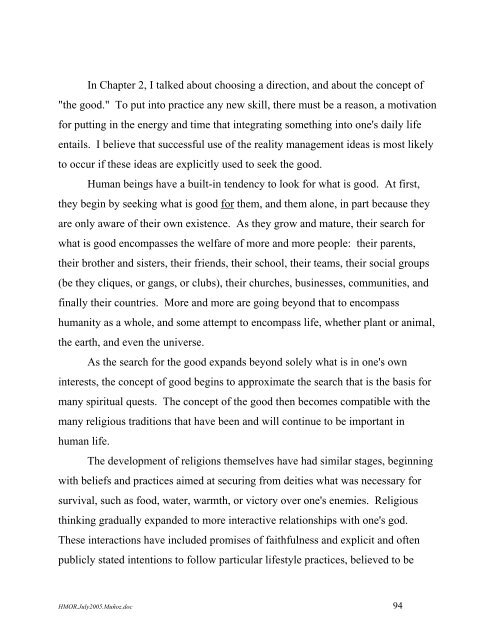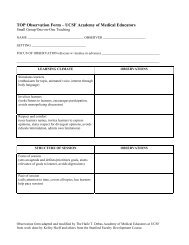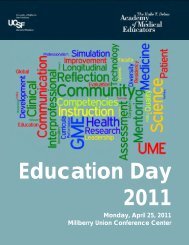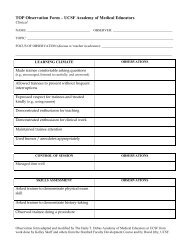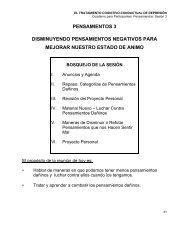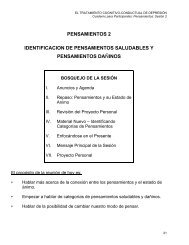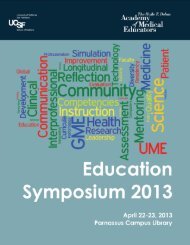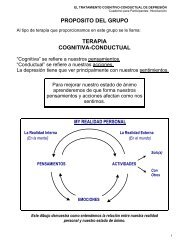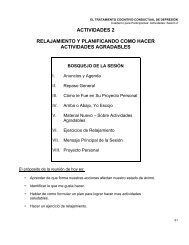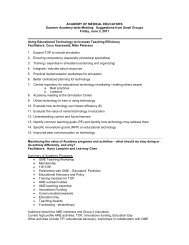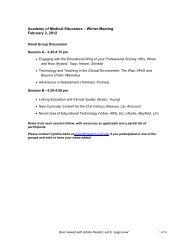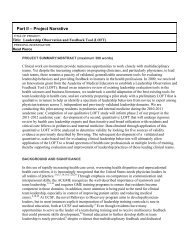The Healthy Management of Reality - Stanford University
The Healthy Management of Reality - Stanford University
The Healthy Management of Reality - Stanford University
You also want an ePaper? Increase the reach of your titles
YUMPU automatically turns print PDFs into web optimized ePapers that Google loves.
In Chapter 2, I talked about choosing a direction, and about the concept <strong>of</strong>"the good." To put into practice any new skill, there must be a reason, a motivationfor putting in the energy and time that integrating something into one's daily lifeentails. I believe that successful use <strong>of</strong> the reality management ideas is most likelyto occur if these ideas are explicitly used to seek the good.Human beings have a built-in tendency to look for what is good. At first,they begin by seeking what is good for them, and them alone, in part because theyare only aware <strong>of</strong> their own existence. As they grow and mature, their search forwhat is good encompasses the welfare <strong>of</strong> more and more people: their parents,their brother and sisters, their friends, their school, their teams, their social groups(be they cliques, or gangs, or clubs), their churches, businesses, communities, andfinally their countries. More and more are going beyond that to encompasshumanity as a whole, and some attempt to encompass life, whether plant or animal,the earth, and even the universe.As the search for the good expands beyond solely what is in one's owninterests, the concept <strong>of</strong> good begins to approximate the search that is the basis formany spiritual quests. <strong>The</strong> concept <strong>of</strong> the good then becomes compatible with themany religious traditions that have been and will continue to be important inhuman life.<strong>The</strong> development <strong>of</strong> religions themselves have had similar stages, beginningwith beliefs and practices aimed at securing from deities what was necessary forsurvival, such as food, water, warmth, or victory over one's enemies. Religiousthinking gradually expanded to more interactive relationships with one's god.<strong>The</strong>se interactions have included promises <strong>of</strong> faithfulness and explicit and <strong>of</strong>tenpublicly stated intentions to follow particular lifestyle practices, believed to beHMOR.July2005.Muñoz.doc 94


